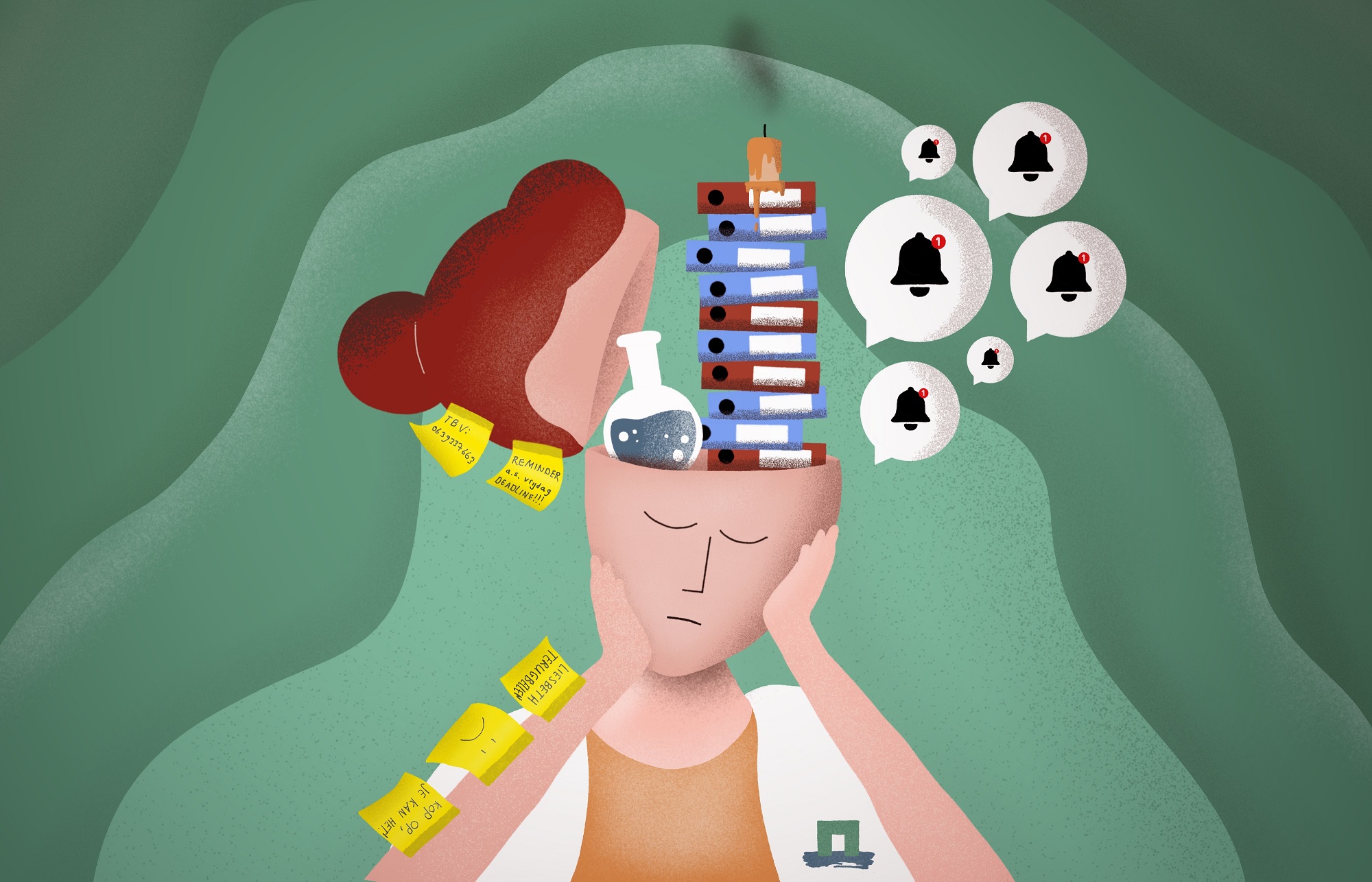Almost half the requests for help from corporate doctors and social workers at WUR are stress-related.
This figure comes from the latest reports from the two groups of professionals. In the past year, 43 per cent of appointments with the corporate social worker were stress-related. In 2019, that was only 40 per cent and five years ago it was 35 per cent. Not that these symptoms always led to sick leave, emphasizes social worker Hester van Bockel. ‘Of the people who report to us, 70 per cent are still working.’
But when employees do report sick, stress is increasingly often the cause of that too. For 46 per cent of the staff who go to the corporate doctor because they are off sick, the reason is ‘psychological problems’. Three years ago, that was 41 per cent. Exactly what those problems are is not known. At least: the doctors know, but for privacy reasons, the employer is not allowed to know.

‘In the past we had to register the reason for sick leave when an employee reported sick,’ says Micheline Horstman, Vitality and Health advisor at Corporate HR. ‘As a result, at the organization level we had a fair idea of the main reasons behind sick leave.’ The HR department is still kept broadly informed of the kinds of problems people come to the company doctors and social workers with.
Burnout
Stress can lead to long-term sick leave and even to burnout (see Burned out. What next? Page 12). There are no hard statistics on burnout as a diagnosis either. ‘We record staff with burnout symptoms under the general term “stress”,’ says Van Bockel. Apart from burnout, other reasons for long-term sick leave can be chronic physical symptoms or acute illness.
Working at home, staff experience more autonomy in doing their job’
Micheline Horstman, advisor Vitality and Health
It is not at all clear yet what effect the coronavirus has had on stress symptoms. It did have a remarkable effect on the total amount of sick leave at WUR, though. After the amount of sick leave taken reached a record high of 4.5 per cent in 2019, there was a sharp drop in 2020 to 3.6 per cent. That means that nearly four out of 100 available working days are lost to ill health. Longer term sick leave was halved that year.
According to Horstman, the coronavirus period led to a ‘nice side benefit’ in certain areas. ‘For example, if they work at home staff experience more autonomy in doing their job and there is more scope to organize their work themselves. We think those are two of the reasons why less sick leave was taken in 2020.’
Staff who are unwell or in need of advice can find help on the intranet: https://intranet.wur.nl/umbraco/en/practical-information/objections-complaints/support-mediation/

 Illustratie: Studio Geniek
Illustratie: Studio Geniek 

